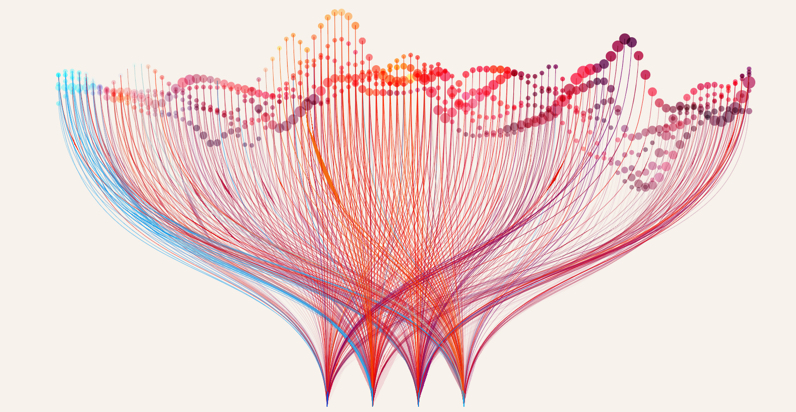How much information can we really absorb and process?
By George Taninecz, VP of Research, The MPI Group
Back in the 1980s, desktop research was an arduous process. From my “smart” terminal, I would type and then print a list of topics for which I wanted information. I’d walk the list — dot-matrix impact printer sheets with tractor-feed edges you could tear off — down to the company’s research department, put it in an inbox, and then wait. A few days later, research would send up a list of potential articles that might contain the information I was seeking. I would then request printouts of the articles, reports, and/or press releases I wanted to review, and research would print them out and drop them off.
The information I received was occasionally what I needed, but clearly time-consuming — four or five days before potentially useable information arrived.
I’ve not seen a piece of tractor-feed paper in decades. And imagine if every information search today required a printout: Google alone processed more than 3.2 trillion searches in 2016 (about 9 billion searches per day). That’s up from approximately 1.3 trillion in 2010 and 22 billion in 2000.[1]
Whereas we once absorbed information at a more leisurely pace — from magazines, books, encyclopedias, etc. — we now are more likely to mainline the internet. I do countless online searches every day, many business-related (e.g., correct spellings, company locations, government regulations) and many inane (e.g., character actor who played a bit role in a favorite movie, cooking time for northern white beans, mid-game spring training score for the Cleveland Indians). Our discussions, debates, and arguments often end with the line, “We have the technology,” and someone pulls out their smartphone to share the supposedly conclusive information.
How much information can we really absorb and coherently process, not just from the internet but from all our electronic media? Alvin Toffler popularized the term “information overload” in 1970 with his book Future Shock[2] — nearly three decades before Google officially existed and what seems like light years before billions embraced social media.
Today, nearly half a century later, our search for information has become insatiable. Where will it lead us? Is the quest for online information, no matter how important or obscure, diminishing our ability or desire to gather facts and data in other, often better ways? Can we comprehend the smell of a rose by reading about it on the internet? Can we build golf muscle memory by watching training videos? Can we taste the umami of sautéed mushrooms by clicking from one online recipe to another?
Sure, we occasionally try to unplug our minds from computers, laptops, smartphones, and all manner of electronic content. Yet disconnected often turns into disconcerting. And then we return to a digital backlog and the stream of new information that keeps relentlessly pouring in. Even so, we need to keep trying.
There is likely no single solution for quenching our appetite for information, but there are steps to help us step away from the terabyte buffet:
- Let’s prioritize our online information needs, using digital tools and social media for what we truly want and need and for when we really need it.
- Let’s experiment and once again learn from trial and error — and failure — instead of rushing for advice from the tens of thousands of online experts.
- Let’s “go to the gemba” more frequently and gather real, in-person experiences and observations instead of internet speculation.
- Let’s live in the real world for at least a few waking hours each day. Period.
© 2018 The MPI Group

